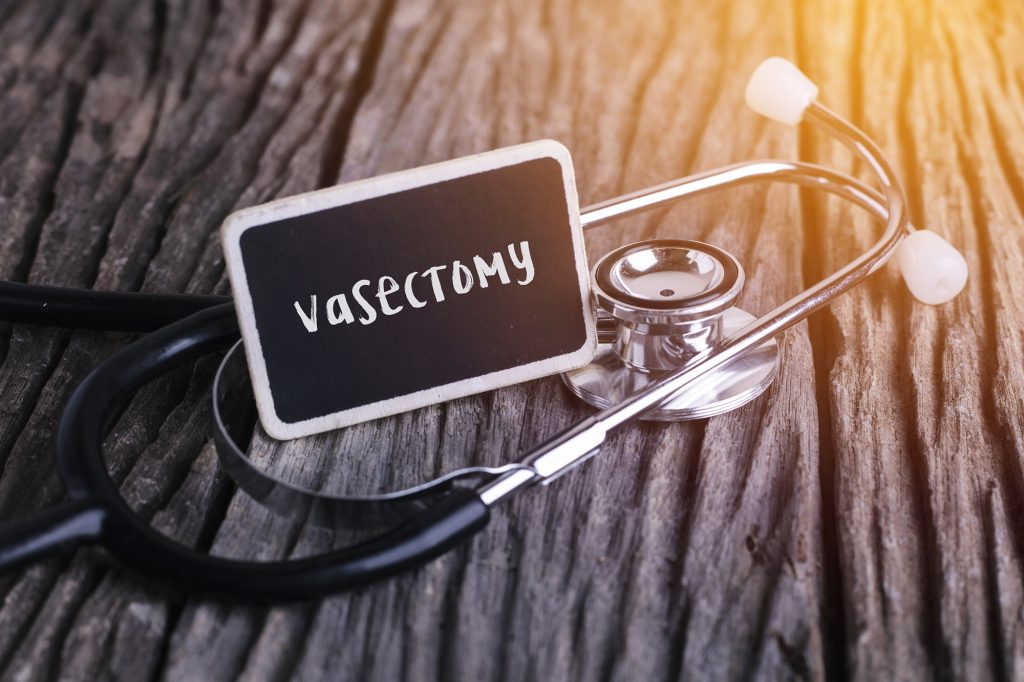Vasectomy & Testosterone: Does It Affect Levels? [Answered]
Does undergoing a vasectomy mean sacrificing your hormonal health? The answer, backed by extensive medical research, is a resounding no. A vasectomy, a common and highly effective form of male contraception, does not interfere with the body's intricate hormonal systems, particularly testosterone production. This article delves into the science and dispels the myths surrounding vasectomy and its effects, providing you with a clear and concise understanding of the facts.
Vasectomy has long been a reliable choice for men seeking permanent birth control. Yet, misconceptions often cloud the truth. Concerns frequently arise about potential impacts on testosterone levels, sexual function, and overall well-being. This piece aims to cut through the confusion, presenting a comprehensive guide based on scientific evidence. We'll examine the procedure itself, its physical and psychological effects, and the long-term implications for your health.
Navigating the landscape of reproductive health can be daunting, especially when faced with significant decisions like vasectomy. This article is designed to serve as your trusted resource, offering a clear and unbiased view of the facts. Whether you're considering a vasectomy, supporting a loved one through the process, or simply seeking knowledge, this guide aims to provide clarity and empower you with the information you need.
- Vail Bloom Chris Pine Inside Their Love Story Relationship Secrets
- Stop Hair Breakage Find The Best Shampoo Now
| Category | Details |
|---|---|
| Procedure Overview | A surgical procedure for permanent male contraception. Involves cutting and sealing the vas deferens, the tubes transporting sperm. |
| Testosterone Impact | No direct impact. Testosterone production occurs in the testicles, separate from the vas deferens' function. Studies confirm stable testosterone levels post-vasectomy. |
| Effectiveness | Over 99% effective in preventing pregnancy. |
| Reversibility | Vasectomy is considered permanent, but reversal procedures are available, though success varies. |
| Physical Effects | Reduced sperm count in ejaculate, possible temporary swelling/discomfort, no change in sexual function. |
| Psychological Effects | Some men may experience anxiety/regret. Open communication and professional support are helpful. |
| Long-Term Impact | No long-term adverse effects on testosterone levels or hormonal health. No increased risk of prostate cancer or cardiovascular disease. |
| Health Considerations | Follow post-procedure instructions, use alternative contraception until sterility confirmed, maintain regular check-ups. |
Source: American Urological Association
A vasectomy, at its core, is a surgical procedure designed to provide permanent male contraception. Performed by a urologist, the procedure involves a relatively simple yet highly effective alteration of the male reproductive system. The vas deferens, the pair of tubes responsible for transporting sperm from the testicles to the urethra, are carefully cut and sealed. This crucial step prevents sperm from mixing with the seminal fluid during ejaculation, thereby eliminating the possibility of fertilization. It's important to note that while sperm production continues within the testicles, the body naturally reabsorbs these cells, ensuring that they do not contribute to conception.
The procedure itself is typically minimally invasive, often performed on an outpatient basis. Local anesthesia is used to numb the area, and the entire process usually takes around 30 minutes. The focus is on ensuring the vas deferens are effectively blocked, creating a barrier to sperm transport. Several techniques can be used, including the traditional incision method or the no-scalpel vasectomy, which minimizes bleeding and scarring. The choice of technique often depends on the individual's anatomy and the surgeon's preference.
One of the key benefits of vasectomy is its remarkable effectiveness. With a success rate exceeding 99%, it offers a high degree of protection against unintended pregnancy. This makes it a very appealing option for couples who have completed their families or who do not wish to have children. However, it is crucial to remember that while vasectomy is generally considered permanent, reversal procedures are possible. The success of a reversal varies and depends on factors such as the time elapsed since the vasectomy and the individual's overall health. Therefore, the decision to undergo a vasectomy should be made with careful consideration, ideally in consultation with both partners and a healthcare professional.
A critical question often posed is: Does vasectomy affect testosterone production? The answer, firmly supported by medical science, is a resounding no. Testosterone, the primary male sex hormone, is produced by the Leydig cells located within the testicles. This crucial hormonal function is completely separate from the role of the vas deferens, which solely transports sperm. The vasectomy procedure, by focusing on the vas deferens, leaves the testicles and their hormone-producing capabilities entirely untouched.
Research and clinical observations consistently validate this fact. Numerous studies have shown that testosterone levels remain stable and within normal ranges after a vasectomy. This means that the procedure does not lead to hormonal imbalances or the associated symptoms, such as decreased libido, fatigue, or mood swings. It is vital to understand that any changes in hormone levels after a vasectomy are highly unlikely to be directly caused by the procedure itself, and are more likely related to other factors such as age, underlying medical conditions, or lifestyle changes.
According to leading medical organizations, including the American Urological Association, vasectomy does not affect the endocrine system, which is the network of glands responsible for hormone production and regulation. This further confirms that the procedure does not interfere with the body's intricate hormonal balance. Men who undergo a vasectomy can therefore expect to maintain their normal testosterone production, experience a healthy libido, and have continued sexual function without any procedure-related hormonal side effects.
To fully grasp why vasectomy does not impact testosterone, understanding the fundamental biology is essential. The testicles are dual-function organs, responsible for producing both sperm and testosterone. Sperm production, a process known as spermatogenesis, occurs in the seminiferous tubules, tiny, tightly coiled structures within the testicles. Testosterone, on the other hand, is produced by the Leydig cells, which are interspersed within the testicles, but have completely different functional roles than the seminiferous tubules.
The vasectomy procedure directly affects only the vas deferens, the pathway that carries sperm from the testicles to the seminal vesicles. By cutting and sealing these tubes, the procedure interrupts the journey of sperm, making it impossible for sperm to mix with the ejaculate. However, the Leydig cells, which are responsible for testosterone production, remain completely undisturbed. Therefore, the vasectomy does not affect the testicular processes involved in testosterone synthesis or release.
The vas deferens plays a crucial role in the male reproductive system, acting as the conduit for sperm. It is a muscular tube that connects the epididymis, where sperm matures and is stored, to the ejaculatory ducts, which open into the urethra. During ejaculation, the muscular walls of the vas deferens contract, propelling the sperm forward. The vasectomy procedure interrupts this crucial pathway by severing and sealing the vas deferens. This ensures that no sperm enters the ejaculate. The procedure does not affect the testicles' production of testosterone or any other hormones.
Numerous myths surround vasectomy, often fueled by misinformation and misunderstandings. It is imperative to address these misconceptions with factual information to empower men to make informed decisions. Let's debunk some of the common myths:
- Myth: Vasectomy reduces testosterone levels. This is completely false. Vasectomy does not affect testosterone production or levels.
- Myth: Vasectomy leads to erectile dysfunction. Studies indicate that vasectomy does not cause erectile dysfunction. Sexual function typically remains unchanged.
- Myth: Vasectomy causes hormonal imbalance. Hormonal balance is not affected by vasectomy.
These myths often originate from a lack of accurate information or the spread of unfounded claims. It is essential to consult with qualified healthcare professionals to clarify any concerns. Relying on verified medical sources will help prevent misunderstandings and encourage informed decision-making.
While vasectomy does not affect testosterone levels or hormonal balance, it does lead to certain physical changes that are worth noting. These are related to the reproductive system and do not impact overall health or well-being:
- Reduced sperm count in semen: Following the procedure, the ejaculate will no longer contain sperm.
- Temporary swelling or discomfort: Mild swelling or discomfort in the scrotum is common and usually resolves within a few days.
- No change in sexual performance: Libido and sexual function should remain unaffected.
Following post-operative instructions provided by your doctor is crucial for a smooth recovery. This often involves avoiding strenuous activities, wearing supportive underwear, and taking over-the-counter pain relievers if necessary.
For most men, the recovery period is typically brief. Many can resume normal activities within a week. However, to confirm the success of the procedure, a semen analysis test is conducted several weeks after the vasectomy to ensure sterility. The timing of this test varies depending on the individual and the clinic.
Although vasectomy does not affect physical health or testosterone production, it can potentially have psychological effects. Some men may experience anxiety or regret after the procedure, particularly if they change their minds about having children in the future. It is crucial to understand and be prepared for potential emotional changes.
If you feel anxious or uncertain about your decision, it is crucial to consider certain coping strategies:
- Communicate openly with your partner about your feelings.
- Seek support from a therapist or counselor, if required.
- Educate yourself on the vasectomy procedure to reduce uncertainty.
Research consistently demonstrates that vasectomy has no long-term impact on testosterone levels or overall hormonal health. Multiple studies, including those published in respected medical journals, have found no statistically significant differences in testosterone levels between men who have undergone vasectomy and those who have not. These findings provide scientific reassurance of the procedure's safety and its minimal impact on the body's internal systems.
Furthermore, vasectomy does not increase the risk of developing serious health conditions such as prostate cancer or cardiovascular disease. This further reinforces its safety. Regular health check-ups with a healthcare provider can help monitor hormonal changes and detect potential issues early.
While vasectomy is generally a safe and effective procedure, it's important to consider the following health-related factors:
- Post-procedure care: Adhere to your doctor's instructions for a smooth recovery and to minimize any risks of complications.
- Continued contraception: Continue using alternative methods of contraception until sterility is confirmed through semen analysis.
- Regular health check-ups: Maintain routine medical exams to help maintain overall health.
Contact your healthcare provider if you experience any of the following symptoms after a vasectomy:
- Persistent pain or swelling in the scrotum.
- Signs of infection, such as redness, increased warmth, or discharge.
- Unusual changes in sexual function or hormone levels.
Before making a final decision, it's crucial to consult a qualified healthcare provider. They can address any questions, discuss potential risks and help you make an informed decision. A healthcare provider will likely perform the following:
- Discuss the procedure and its effects on fertility and hormones.
- Review your medical history and assess any potential risks.
- Provide guidance on post-procedure care and follow-up.

Do You Still Produce Sperm After A Vasectomy? MSI Vasectomy

Do You Still Produce Sperm After A Vasectomy? MSI Vasectomy

Do You Still Produce Sperm After A Vasectomy? MSI Vasectomy